Carolina Are
Content
Carolina is platform governance researcher with a PhD in online abuse and conspiracy theories, currently working as Innovation Fellow at Northumbria University’s Centre for Digital Citizens. Following her experiences of online censorship, she has been researching on algorithmic bias against nudity and sexuality on social media, and has published the first study on the shadowbanning of pole dancing in Feminist Media Studies. Her work has been published in New Media & Society, Social Media + Society, Porn Studies and Convergence, and it has appeared in The New York Times, The Atlantic, The Conversation, the BBC, Wired, the MIT Technology Review. She is also a content creator and blogger, as well as an activist and a pole dance instructor, on social media at @bloggeronpole.
Lidia Dutkiewicz
Content
Lidia is a Doctoral Researcher at the KU Leuven Centre for IT & IP Law – imec. In her Ph.D. research, she analyses the phenomenon of platformization of news and the impact of algorithmic content moderation on freedom and pluralism of the media. As part of the AI4Media project she studies the impact of AI media applications, including generative AI, on fundamental rights. She also investigates the role of algorithmic gatekeepers and the power imbalance between platforms and media. Lidia also works as an ethics advisor in the vera.ai (VERification Assisted by Artificial Intelligence) project.
João Pedro Quintais
Content
João Pedro is Assistant Professor at the University of Amsterdam, Institute for Information Law (IViR). João is also Co-Managing Editor of the widely read Kluwer Copyright Blog, co-Director of the Glushko & Samuelson Information Law and Policy Lab, member of the European Copyright Society, member of the Management Team of the Digital Services Act Observatory, member of ALGOSOC project on Public Values in the Algorithmic Society, and member of the Netherlands Network of Human Rights Research (Working Group Human Rights in the Digital Age).
Mikołaj Firlej
Data
Mikołaj is a Lecturer (Assistant Professor) in AI Law and Regulation at the University of Surrey. His work centres on the role of human factors in the increasingly algorithmic decision making across various sectors. Mikołaj’s particular focus is on the operationalisation of the emerging legal principle of meaningful human control over the use of autonomous systems. He holds a doctorate (DPhil) from the Faculty of Law, University of Oxford awarded for a thesis on the emerging regulatory standards over the use of AI-augmented and autonomous weapon systems in the US Air Force. He also holds an Master of Public Policy (MPP) from the Oxford University’s Blavatnik School of Government, as well as degrees in law and in philosophy from the University of Warsaw.
Federica Paolucci
AI
Federica is currently pursuing her Ph.D. in Constitutional Law at Bocconi University. She serves as the Coordinator for the LL.M. in Law of Internet Technology. Her research revolves around the impact of Artificial Intelligence on the protection of fundamental rights, with a particular emphasis on access to justice in the context of biometric recognition technologies.
Giuseppe Muto
AI
Giuseppe is a Ph.D. student at Bocconi University, where he collaborates with the Chairs of Digital Law and Constitutional Law and within the LLM in Law of Internet Technology. His research primarily centers on emerging technologies, with a keen focus on AI. He is interested in analyzing and shaping the policies surrounding these innovative tools to foster entrepreneurial growth while safeguarding fundamental rights. Giuseppe is the author of several publications in scientific journals and in specialised magazines. He is also a member of the Editorial Board of the “Rivista di diritto dei media” (Medialaws).
Mark Konstantinidis
AI
Mark is a Doctoral Candidate and Visiting Lecturer in Law at King’s College London. His research is fully funded by KCL’s Centre of European Law. He is a qualified lawyer, registered at the Athens Bar Association. Mark’s interests span EU law, international economic law, and international arbitration. Mark is currently serving as Senior Editor of the European Federation for Investment Law and Arbitration (EFILA) Blog, and Analyst at EU Law Live. Mark was also previously a Teaching Fellow at University College London. He has worked at the Hellenic Competition Commission and served at the Hellenic Airforce Court Martial.
Natalia Neuber
AI
Natalia is a third-year law student at the LSE and an alumna of the CIVICA exchange year at Bocconi University. Her interests focus on human rights and the ethical challenges of emerging technologies. She assisted in research at the LSE and the EUI on AI in courts, data privacy, and online platform accountability. In her own research, she explores the concepts of explainable and trustworthy AI, democratic theory in a digitalised public sphere, and ethics of gestational surrogacy. She also works at GDF, where she aids the regulatory department in shaping policies and best practices for digital assets, bridging the gap between innovation and regulation.
Ximena Calderon
AI
Ximena graduated from the London School of Economics and Political Science in 2023 with a Master of Science in Regulation, focusing on utilities regulation. With over ten years of legal experience, she currently works as an associate at Bullard Falla Ezcurra +, advising international organizations and major utility agents on regulatory matters. During her master’s program, Ximena developed a strong interest in digital regulation and its practical application to address real-world challenges. She advocates for diversity, equity, and inclusion, currently volunteering as coordinator of a mentoring program that promotes women’s participation and leadership in the Peruvian energy sector.
Flavia Bavetta
Cyber
Flavia is a PhD Student at Bocconi University. Her research is focused on the influence of AI technologies on the digital state decision making processing, as well as on the major impact these technologies have on citizens’ fundamental rights. Particularly, in her studies, she aims to understad the possible implications for citizens’ fundamental rights posed by the public actor’s use of AI, considering a new concept of state, the so-called ‘digital state’, in which the traditional idea of balance of powers is altered by the use of new technologies.
Paloma Krõõt Tupay
Data
Paloma teaches constitutional law at the University of Tartu in Estonia and holds a Ph.D. from the University of Cologne supervised by Prof. Angelika Nussberger and Prof. Lauri Mälksoo. In addition to fundamental rights and governance, her research activities focus on data protection, e-governance and digital constitutionalism. She has co-authored different legal evaluations on possibilities for the use of artificial intelligence and big data in e-government and its impact on fundamental rights. Among others, she has co-edited and -written with prof Martin Ebers, “Artificial Intelligence and Machine Learning Powered Public Service Delivery in Estonia. Opportunities and Legal Challenges” (Springer, 2023).


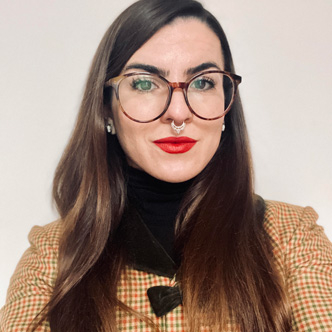 " alt="">
" alt="">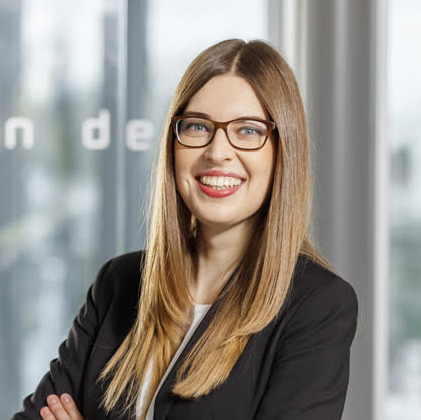 " alt="">
" alt=""> " alt="">
" alt=""> " alt="">
" alt="">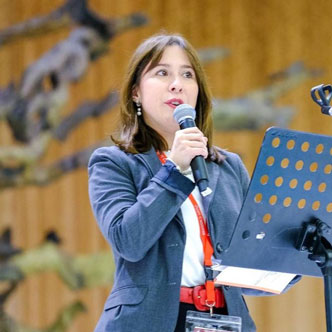 " alt="">
" alt="">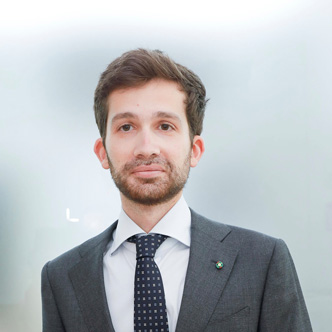 " alt="">
" alt="">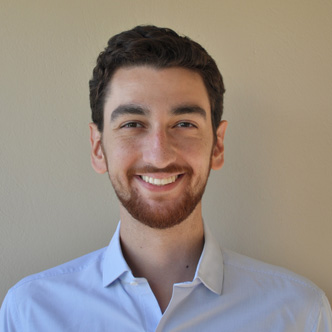 " alt="">
" alt="">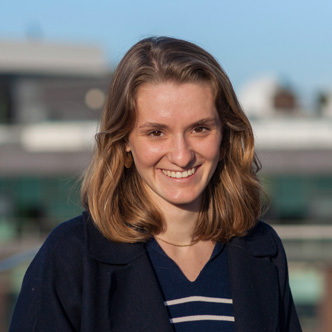 " alt="">
" alt="">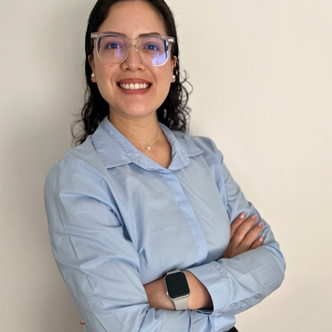 " alt="">
" alt="">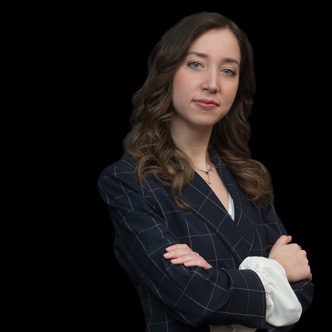 " alt="">
" alt=""> " alt="">
" alt="">